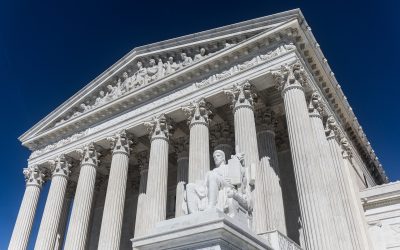Reason is our main means of survival. In that sense, freedom of speech is an aspect of your right to your own life, which is why it is properly guaranteed by the Constitution.
Beyond that, it is one of the most important protections against dictatorship. Dictatorships rely on censorship; no dictator can allow his crimes and corrupt actions to be exposed.
But in its application, freedom of speech is a complex concept that has been debated in the courts for many years. Here are a few fundamentals to consider, beginning with what free speech does and does not encompass.
Freedom of speech is a specific type of action: talking or writing in order to communicate or convey thoughts or ideas. It does not include non-speech actions such as walking, lifting, waving, dancing, looking, hugging, beating, hitting, shooting, or the like.
The legal debates have revolved around this basic issue: are there any proper limits to freedom of speech? If so, what are they? The general principle involves whether some speech violates the legitimate rights of others. The key word here is “legitimate” since different people have different ideas about what constitutes a right.
To that end, some speech limitations are properly recognized under the law. Fraud, a false claim in a financial transaction, violates the rights of others. For instance, selling a used car and promising that it has only 50,000 miles on it when, in fact, it has 150,000, constitutes fraud. Promising to invest people’s money, but then using it to buy houses and yachts, constitutes fraud. In each case, the conman is using speech to steal.
Another proper limitation on speech is in cases of treason. Giving aid and comfort, including military secrets, to an enemy puts all citizens at risk of harm. The government is obligated to prevent treason to protect your rights. Treason is aiding and abetting a crime.
Other proper limitations include slander and libel. Lies can undermine or destroy a person’s reputation and livelihood, a form of theft. Another is giving one company’s trade secrets to another company, which may cause them to lose income or go bankrupt. This is also stealing. Related to this are blackmail and extortion, threatening to reveal embarrassing information that will harm a person in order to get money. Another is conspiracy: working with others to plan and execute crimes; this is the same thing as participating in a crime.
A key point here is this: the fact that criminals use speech in some form to commit their crimes does not exonerate them from the crime.
What about this famous example of falsely yelling, “Fire!” in a crowded theater? Such a lie could be a joke or could be ignored. If it were designed to cause a panicked response that actually caused injury, a legal issue could be involved.
What is the general principle here? Speech should be prohibited when it is used to lie or to steal proprietary information and causes people objective harm by taking away something they own or have a right to without their consent.
This brings me to the next issue: what about psychological harm, such as making people feel bad? Here one has to draw a firm limit. Freedom of speech cannot be prohibited through censorship by the government to protect people’s feelings.
What if a friend tells your child to commit suicide? This is pure evil, but the best defense is parental awareness of what is going on and constant communication with the child. What about group (non-physical) bullying? Better look for a better group.
I read two newspapers every day, and I also read many books and watch the news. I am offended all the time. I find many of the ideas I read about hateful. But people have no right to make others stop talking because of the recipient’s personal psychology or philosophy. This would make harm subjective and the law random. It could bring all communication in the world to a halt—a preposterous war of all against all. One would not even know what was legal and what was not, and the rules could change every day.
The government has no right of censorship outside the sphere of objective laws. “Hate” speech has to be allowed, so long as it does not advocate crime. The way to fight against bad ideas is by communicating your good ideas, based on reason instead of feeling. Private organizations and property owners should have the right to set up any speech rules they want on their premises (given the proper, legal limits noted earlier). People who are offended can boycott or quit any private organizations that they deem offensive including leaving the property.
Given today’s culture of endless irrational, vicious, and hateful attacks in the media, I can understand why some people believe that the government’s role is to step in and prevent selected speech. Yet, this would be a disastrous mistake. It would make the government the arbiter of truth and the ruler of all public communication, and it would insulate the government from any criticism, including any exposure of its own crimes and corruptions.
Government censorship is a widely misunderstood concept. Government censorship occurs when it prohibits free speech or uses force to prohibit or punish the expression of certain ideas. The government should have no such power except as noted earlier, where legitimate rights are being violated. This includes any government attempt to censor private networks, such as Twitter or Facebook, unless they are violating legitimate rights. Government censorship should not be allowed with respect to private or public communications, such as newspapers, radio, TV, books, speeches, private libraries, or speech within your home. Citizens have the right to say what they want, as long as they do not violate legitimate rights. Likewise, publishers and private organizations have a right to decide against publishing certain words, ideas, or books.
Does all this mean people can be legally exposed to communications they hate (with the limitation noted earlier)? Yes. The best defense against wrong, irrational, or evil ideas is to present rational ideas. If you see a wrong view being expressed, speak up whenever possible. Say what you disagree with, provide your reasons (not your feelings), and propose a rational view of the issue at stake.




